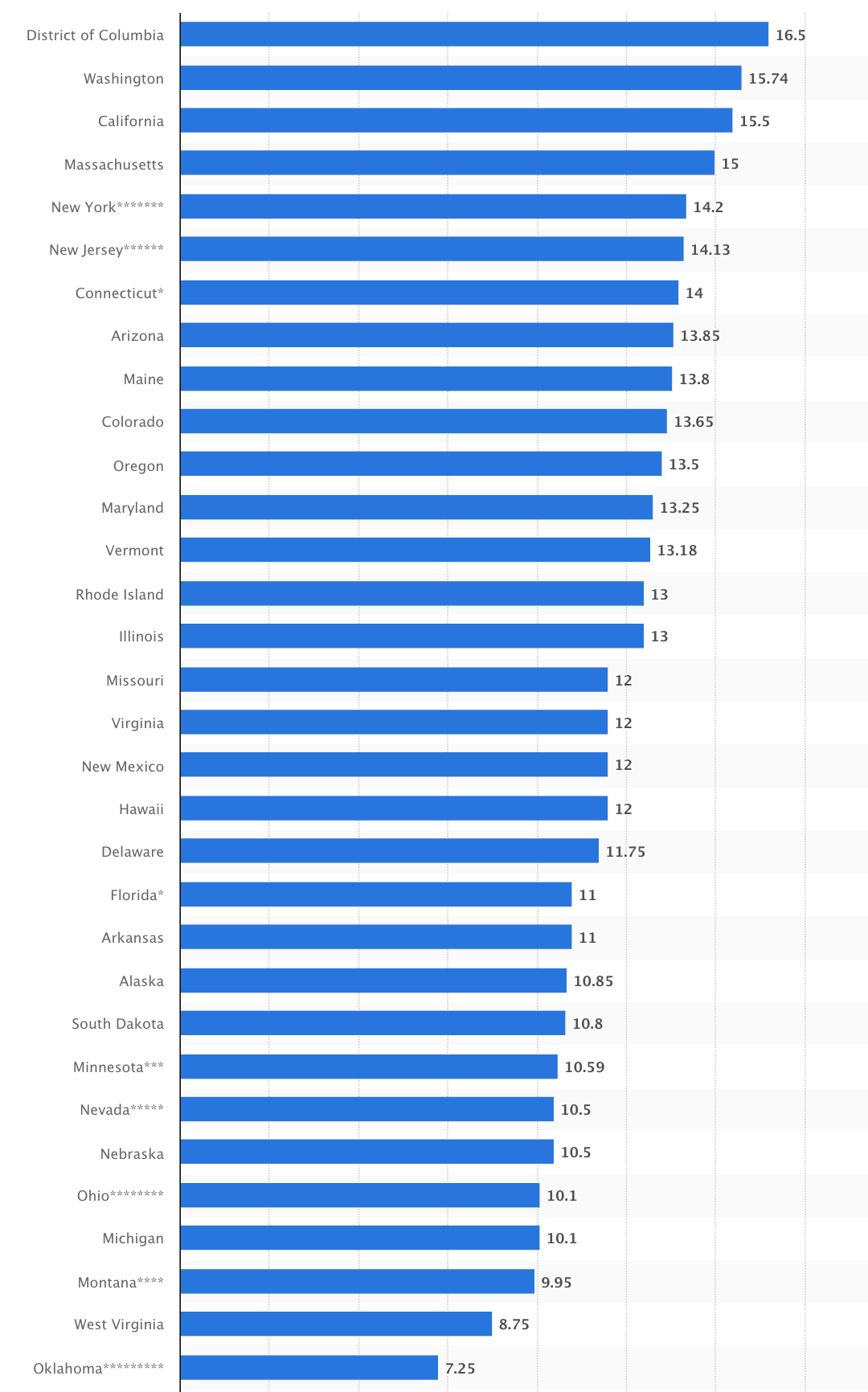Unions want to raise New York's minimum wage to $21.25 over three years and tie it to inflation
Given that the Democratic Party holds a "trifecta" in the state, New York employers should begin planning now.

On Monday, members of the Service Employees International Union, Local 32BJ, Communications Workers of America, New York City Council members, as well as New York Attorney General Letitia James rallied to include the Raise the Wage Act in the already-late state budget.
If passed, the New York Daily News reported:
“The bill would increase the state’s minimum wage to $21.25 over the next three years, and then adjust it each year going forward for inflation.”
Currently, the minimum wage in New York State is $14.20 per hour and $15 for most employers in New York City.
Among those states with higher-than-federal minimum wages, according to Statista.com, New York State’s minimum wage is below states like Washington, California and Massachusetts (as well as the District of Columbia).
If the Raise the Wage Act were to pass and be signed into law, this would mean the minimum wage would rise $7.05 over the course of three years, or $2.35 per hour in each of the next three years.
Further, once reaching the $21.25 per hour, if the inflation rate were to be at five percent (5%) in 2026, for example, the minimum wage would increase another $1.06 in 2027, to $22.31 per hour.
If the inflation rate remained at five percent (5%) in 2027, the minimum wage rise another $1.12 and the new minimum wage would be $23.43 per hour.
Of course, that drastic of a rise in the wage floor in such a short period of time would likely cause pay (wage) compression, which is “when the pay of one or more employees is very close to the pay of more-experienced employees in the same job, or even those in higher-level jobs...” for many employers.
In addition it could, perhaps, even cause pay inversion, “where newer staff make more than experienced staff.”
However, the Raise the Pay Act proponents do not seem too concerned with the potential economic consequences
While, at the federal level, the Congressional Budget Office (CBO), projected that an increase to a $15 federal minimum wage by 2025 could mean an average of 1.4 million jobs lost nationwide, a fall in business revenues leading to a $9 billion drop in real income, and increases in the prices of goods and services across the economy, New York does not seem to share the CBO’s concerns.
In fact, a New York City Comptroller analysis largely passes over the potential economic consequences, only mentioning wage compression in the endnotes:
Wage compression would push compensation higher also above the minimum, generating a spillover effect onto “indirectly affected” workers. Given the uncertainty surrounding the simulation exercise, we don’t also make a modeling assumption regarding indirect effects.
While it is unknown whether New York’s Democrat-controlled legislature will pass the Raise the Wage Act as is, or modify it, and whether Governor Kathy Hochul would sign it into law, given that the Democratic Party holds a “trifecta” in the state, New York employers may want to begin planning in advance.




